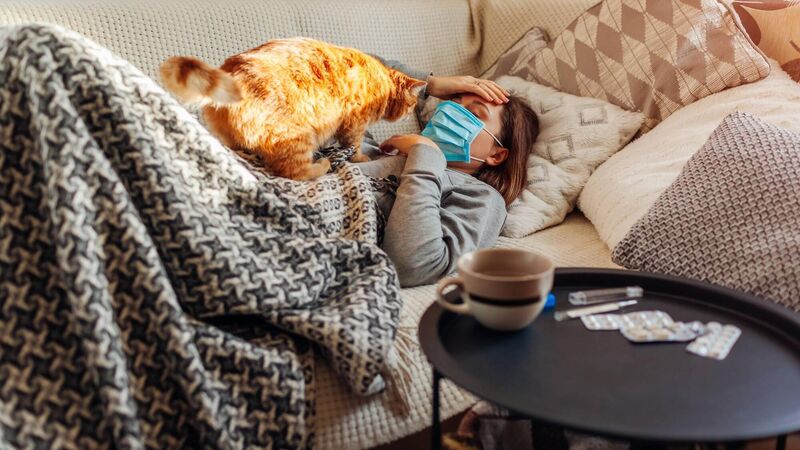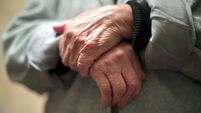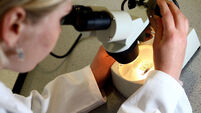Cork doctor: 'We’ve seen a big influx of older adults who have developed influenza and become very sick'

Cork healthcare settings are dealing with a huge spike in flu cases, with a professor of emergency medicine at Cork University Hospital saying that it’s predicted the hospital’s capacity will be challenged by the end of this weekend.
Cork healthcare settings are dealing with a huge spike in flu cases, with a professor of emergency medicine at Cork University Hospital saying that it’s predicted the hospital’s capacity will be challenged by the end of this weekend.
Meanwhile, a Blackpool GP has said the peak of flu season started earlier than usual this year, and is affecting up to 75% of patients he’s seeing.
There were 742 people hospitalised with flu nationally today as pressure increases on acute hospitals in the post-Christmas period, according to the HSE.
A spokesperson said that the numbers so far are at the upper end of what they had predicted.
Prof Conor Deasy, Clinical Director of Emergency and Acute Care at CUH told The Echo: “There’s been a really sharp increase in the numbers of patients with influenza and RSV over the last two or three weeks.
“For many people, influenza is not a serious condition. They simply need to rest, take plenty of fluids and take paracetamol as needed, seek out local advice from their GP or pharmacist or read HSE guidance, but for some people it can become a very serious condition.
“Those who become short of breath, or who are confused or delirious need to come to the emergency department.
“We’ve seen a big influx of older adults in particular who have developed influenza and become very sick, and we have no doubt it is going to get worse before it gets better.”
Daily trolley figures from the Irish Nurses and Midwives Organisation showed just ten people on trolleys in CUH on Friday, much lower than the figures had been on average this year, but Mr Deasy explained that pressure will increase in the days ahead.
“We’re containing the problem as best we can at the moment, at Christmas time there isn’t much scheduled activity in hospitals so there is extra bed capacity but that won’t last very long – by the end of this weekend we’re expecting to be challenged in terms of capacity.
“Senior leadership were in the Emergency Department (ED) and hospital, both clinical leadership and management, in order to make best use of available resources.
“At CUH that means using beds carefully, minimizing the duration of stay for patients and using facilities like Mallow, St Finbarr’s and South Infirmary Victoria University Hospital so that we all share the burden of the viral outbreak.
“We’re also doing our very best to cohort patients to reduce the spread of infection. If there is a six-bedded ward and one patient in it develops influenza, that impacts other five patients so we’re being very careful when it comes to screening.”
Dr John Sheehan, a GP in Blackpool and Fianna Fáil councillor, said: “This happens every year, but this year it was a bit different, the rise in cases started a little bit earlier than previous years.
“In our own practice, half to three quarters of the patients we’ve seen have had flu-like illnesses, and unfortunately some of them have been quite sick and we’ve had to send some to hospital.
“For older and vulnerable people in particular, it can easily tip over to cause respiratory problems.
“The HSE has a few supports available to help cope with the demand, they are encouraging people to get their flu vaccine and they have also supported extended surgery opening hours for practices across the country to take pressure off of hospitals and out of hours services.”
HSE chief executive Bernard Gloster urged the public to use alternative healthcare services such as GP, GP Out of Hours, injury units and pharmacies when appropriate, but to go to the ED if they are very sick and in an emergency situation.
The HSE have also urged people to be aware of any hospital visiting restrictions due to circulating infections, and for infection prevention and control purposes, which can be found on the HSE website.









 App?
App?


